
Douglas Wayne Sahm was an American musician, singer-songwriter and multi-instrumentalist born in San Antonio, Texas. Sahm is regarded as one of the main figures of Tex-Mex music, and as an important performer of Texan Music. He gained fame along with his band, the Sir Douglas Quintet, with a top-twenty hit in the United States and the United Kingdom with "She's About a Mover" (1965). Sahm was influenced by the San Antonio music scene that included conjunto and blues, and later by the hippie scene of San Francisco. With his blend of music, he found success performing in Austin, Texas, as the hippie counterculture soared in the 1970s.
Los Super Seven is an American supergroup which debuted in 1998. According to Allmusic's Stephen Thomas Erlewine, "Los Super Seven isn't a band, per se – it's a collective, organized by manager Dan Goodman, who comes up with a concept for each of the group's albums and assembles a band to fit." The collective has released three albums to date, with wildly varying personnel. Only Ruben Ramos and Rick Trevino are featured on all three releases.

The Sir Douglas Quintet was an American rock band formed in San Antonio, Texas in 1964. With their first hits, they were acclaimed in their home state. When their career was established, the band relocated to the West Coast. Their move coincided with the burgeoning San Francisco psychedelic rock scene of the mid 1960s to early 1970s. Overall, the quintet were exponents of good-times music with strong roots in blues and Texas-regional traditions. The band's songs were most noted for the instantly distinguishable organ sound of Augie Meyers' Vox Continental.
Texas Tornados is an American Tejano supergroup, composed of some of country music's biggest artists who modernized the Tex-Mex style including Flaco Jiménez, Augie Meyers, Doug Sahm, and Freddy Fender. Its music is a fusion of conjunto with rock, country, and various Mexican styles.

Shotgun Willie is the 16th studio album by American country music singer-songwriter Willie Nelson, released on June 11, 1973. The recording marks a change of style for Nelson, who later stated that the album "cleared his throat". When Nelson refused to sign an early extension of his contract with RCA Records in 1972, the label decided not to release any further recordings. Nelson hired Neil Reshen as his manager, and while Reshen negotiated with RCA, Nelson moved to Austin, Texas, where the ongoing hippie music scene at the Armadillo World Headquarters renewed his musical style. In Nashville, Nelson met producer Jerry Wexler, vice president of Atlantic Records, who was interested in his music. Reshen solved the problems with RCA and signed Nelson with Atlantic as their first country music artist.
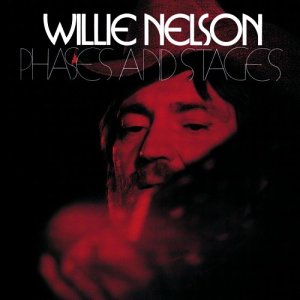
Phases and Stages is the 17th studio album by American country music singer-songwriter Willie Nelson, released in March 1974. It followed the moderate success of his first Atlantic Records release, Shotgun Willie. Nelson met producer Jerry Wexler at a party where Nelson sang songs from an album he planned to record. The single "Phases and Stages" was originally recorded the same year. Nelson recorded the album at Muscle Shoals Sound Studios in two days and Wexler produced it.

From St. Louie to Frisco is the twelfth studio album by Chuck Berry, released in 1968 by Mercury Records. One track on the album, "My Tambourine", is the same tune as Berry's later hit for Chess Records, "My Ding-a-Ling", but with less risque lyrics. The Sir Douglas Quintet backed Berry on parts of this album.
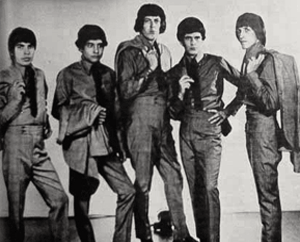
August "Augie" Meyers is an American musician, songwriter, studio musician, record producer, and record label owner. He is perhaps best known as a founding member of the Sir Douglas Quintet and the Texas Tornados.

The Troublemaker is the 20th studio album by country singer and songwriter Willie Nelson. When Nelson refused to sign an early extension of his contract with RCA in 1972, the label decided not to release any further recordings. Nelson hired Neil Reshen as his manager, and while Reshen negotiated with RCA, Nelson moved to Austin, Texas, where the ongoing hippie music scene at the Armadillo World Headquarters renewed his musical style. In Nashville, Nelson met producer Jerry Wexler, vice president of Atlantic Records, who was interested in his music. Reshen solved the problems with RCA and signed Nelson with Atlantic Records as their first country music artist.
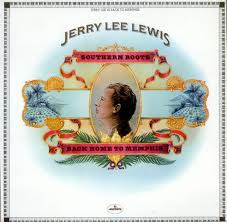
Southern Roots: Back Home in Memphis is an album by Jerry Lee Lewis released on Mercury Records in 1973.
Louie and the Lovers was an American rock band based in Prunedale, California.

Doug Sahm and Band is the debut solo album of American singer-songwriter Doug Sahm. In 1972, after leaving the Sir Douglas Quintet, Sahm moved to Austin, Texas. He was signed by Jerry Wexler to the newly opened country music division of Atlantic Records, and started the album sessions by October 1972. It featured appearances by Bob Dylan, Dr. John, David "Fathead" Newman, Flaco Jimenez, David Bromberg and Kenny Kosek.
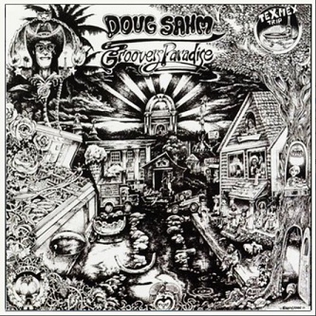
Groover's Paradise is an album by Doug Sahm, produced by musician Doug Clifford and released on Warner Records in 1974. Following his return to Texas after his success with the Sir Douglas Quintet in California, Sahm settled in Austin, Texas. As the local music scene thrived, he was featured as the main attraction in local clubs and he recorded his debut album for Atlantic Records.

Texas Tornado is the second solo album by Doug Sahm, released by Atlantic Records in December 1973. Sahm co-produced the album with Jerry Wexler and Arif Mardin. Wexler signed Sahm to Atlantic records after the opening of the label's country music division.

Hell of a Spell is an album by singer-songwriter Doug Sahm released by Takoma Records in January 1980. Sahm was signed to the label in 1979 after it was acquired by Chrysalis Records the same year. Upon request of the president of Takoma, Sahm recorded blues numbers and he dedicated the record to Guitar Slim. While the album was well received by the critics, it was a commercial failure.
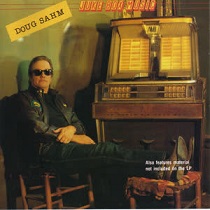
Juke Box Music is an album by singer Doug Sahm released by Antone's Record Label in January 1989. Sahm returned to Austin, Texas in 1988 after living and experiencing success with his music in Sweden and Canada. Upon his return, Sahm started to perform at the Austin night club Antone's. The owner of the club, Clifford Antone signed him to his independent record label.
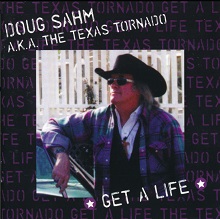
Get a Life is a 1998 album by Doug Sahm released by the Dutch label Munich Records. The tracks were recorded in Austin and San Marcos, Texas, Seattle, Washington and Los Angeles, California. The producers of the tracks included Sahm, Mike Stewart, Billy Stull and Bob Flick. Sahm wrote the liner notes for the album. The recordings featured The Gourds, as well as Augie Meyers. Sahm met The Gourds as he performed at a music festival in Belgium in 1997. Sahm approached the band after he heard them sing a cover of his original "At the Crossroads".
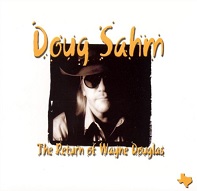
The Return of Wayne Douglas is the last studio album recorded by Doug Sahm. It was released by his own label, Tornado Records.
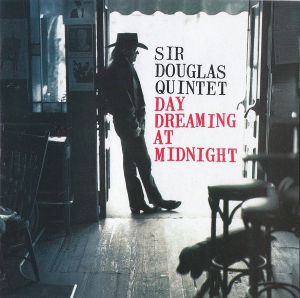
Day Dreaming at Midnight is an album by the American band the Sir Douglas Quintet, released in 1994. Doug Sahm was motivated to reform the band due to his son Shawn's musicianship and the encouragement from Metallica's manager Cliff Burnstein.
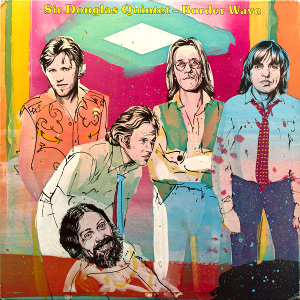
Border Wave is an album by the American band the Sir Douglas Quintet, released in 1981. Doug Sahm was inspired to record the album after the success of Joe Carrasco and Elvis Costello. It was Sahm's second album for Takoma Records. Border Wave peaked at No. 184 on the Billboard 200. The band supported the album with a North American tour.

















